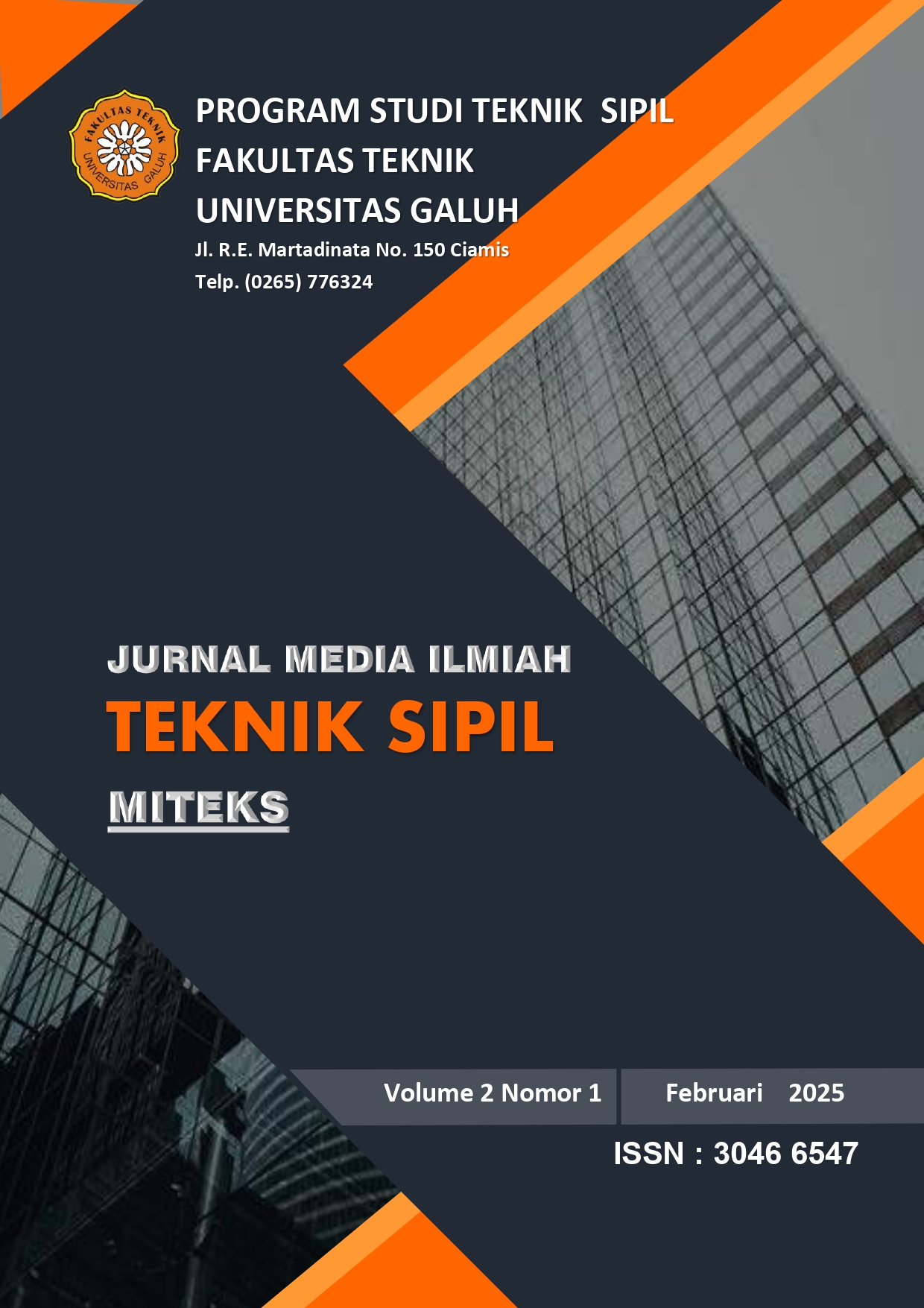Analisis Waktu Proyek Peningkatan Jalan Sukajadi - Kertahayu Menggunakan Metode Earned Value
DOI:
https://doi.org/10.25157/mediailmiahtekniksipil.v2i1.3977Kata Kunci:
Kata Kunci : Earned Value,Kinerja Waktu, SPIAbstrak
The benchmark for project success is usually seen from a short completion time with minimal costs without compromising the quality of the work. Good time control is expected to help implement projects according to the planned time. Many methods are used to control time. The method used to control time on the Sukajadi-Kertahayu Road Improvement Project, Pamarican District, is the Earned Value method. The Earned Value method can integrate time and cost factors in construction project control and is one way to measure performance indicators that occur.
The method used in this research is the interview method and quantitative descriptive method. The interview method is used to obtain information for research purposes by conducting questions and answers. The quantitative descriptive method describes project conditions by analyzing existing data. Collecting data or information from the implementation of a construction project which is very useful for evaluating overall time optimization.
The research results show that the time performance of the Sukajadi-Kertahayu Road Improvement Project, Pamarican District, Ciamis Regency is not good with an average Schedule Performance Index (SPI) value of 0.73 < 1, this shows that the project completion time exceeds the planned project time (delays occur). The estimated time needed to complete the Sukajadi-Kertahayu Road Improvement Project, Pamarican District, Ciamis Regency, is that the fastest estimated time occurs in the 16th week (119 days) and the longest estimated time occurs in the 2nd week (840 days).













